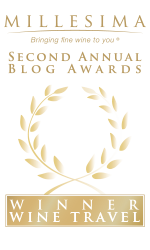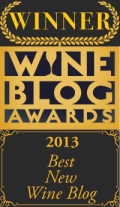A predominantly Muslim country might be one of the last places you would expect produces wine—good wine, in fact—but Turkey has been resurrecting their very ancient (allegedly between 7000 – 15,000 years-old) wine traditions over the past few decades, making significant strides in quality in recent years. Thus, the arrival of Vinkara to NYC, a winery founded ten years ago and largely focused on the indigenous varieties of the country, couldn’t be timelier–very soon, foreigners may be the only ones buying Turkish wine.
Back home, the Turkish government, led by President Abdullah Gül, seems set on passing increasingly restrictive alcohol laws to protect the nation’s youth from the “evils of drinking” and stop a nation’s alcohol consumption that hovers at a mere 1.5 liters per person annually (compared to 10.7 in the European Union, according to a 2012 Organization for Economic Co-operation and Development health study.) Sounds like a commingling of politics and ideology, no? Particularly if 83% of the country doesn’t drink?
Although there are, what some might consider, not wholly unreasonable “regulations”—no alcohol sales between 10 p.m. and 6 a.m., no bottles displayed in see-through shop windows and no wine sold at restaurants and shops near schools and mosques, there is one component of the new bill that is not only vague but strikes at the core method for a winery, especially a newer one, to exist and grow—advertising.
Under the new legislation, signed into law on June 10, all sorts of advertising campaigns will be completely banned–promotions, sponsored activities, festivals and free giveaways. The sole exception will be the international fairs that facilitate the global marketing of wines and other alcoholic beverages—so the rest of us depraved drunks can support the industry. Under the bill, alcohol companies would no longer be allowed to promote their brands and logos except within the facility itself. So, no winery logos on business cards? What about websites? And the punishment for violating the ban that you might know you violated is a fine ranging from 5000 to 200,000 Turkish liras or the U.S. equivalent of $2591-$103,648. Yikes.
So why do we care about this? As Americans and wine lovers who have experienced our own varying degrees of alcohol regulation, much of it absurd and leftover from prohibition, I believe it is important to show solidarity with the folks overseas working within this restrictive environment while trying to resurrect native varieties. Turkish Merlot is already a tough sell, let alone trying to convince people to buy wines they can’t pronounce or spell. And if the industry doesn’t survive, most of us will never taste these fascinating grapes. Maybe that’s partly selfish motivation—if the wines stunk would we care about preserving Turkey’s vinous heritage? Well, that question need not be answered today because I sampled four of Vinkara’s wines at Corkbuzz two days ago, and they are definitely keepers.
I tasted with the founder of the winery Ardic Gursel. She was in town for a week promoting the launch of her line-up in the NY market. Of lovely demeanor and quite enthusiastic about the industry’s potential, despite the problems at home, she explained the winery’s location and their philosophy. “We are located northeast of Ankara, near the region of Kalecik, a beautiful place and famous area known for its vineyards with a very ancient history and tradition of winemaking. We have worked hard to understand what varieties are best suited for our land and grow those grapes. Why should we make wines from international varieties and compete on that level when we have truly unique grapes of our own? We want to be known for growing Turkey’s grapes. They are wonderful.”
I tasted wines from two native varieties: Kalecik Karasi and Narince. Taken from Vinkara’s promotional material:
Kalecik Karasi (pronounced: Kah-le-djic-car-ah-ser with ‘er’ as in British ‘father’) is an indigenous red grape varietal originating and named after the town of Kalecik, in Central Anatolia. A close relative to Pinot Noir, the Vinkara Kalecik Karasi is medium bodied, low in tannin, fruit forward with a lively, crisp acidity.
Narince (pronounced: Nah-rin-djeh meaning ‘delicately’ in Turkish) is a white grape originating from Tokat province in the Black Sea wine growing region.
Out of the four wines, I preferred the un-oaked Narince 2012 and the oak-aged Kalecik Karasi Reserve 2010. (The other two wines were an oaked Narince and un-oaked Kalecik Karasi.) What I found fascinating about both bottlings was their utter familiarity—the only thing unfamiliar were the varietal names on the label. If consumers sampled them both blind in a retail store, they would not only find them delicious but would be unable to put their finger on what, just exactly, it was they were tasting.
The Narince 2012 ($15.99), clean and crisp with touches of apricot and tropical fruit, had a texture similar to Viognier, reminding me of a cross between that and perhaps cooler-climate Chardonnay. The Kalecik Karasi Reserve ($25.99) had a lightness and brightness that reminded me of Pinot Noir and a fresh, fruity Gamay. Although aged in French barrels, the oak was so well-integrated, the purity of the red and blackberry fruit remained intact.
To find these bottles in New York, and I highly recommend that you do, check these stores:
Ambassador Wines & Spirits, Manhattan
Sip Fine Wine, Park Slope, Brooklyn
For the rest of you, try wine-searcher.com. If not available now, Vinkara is fighting for a place on your shelves, so check back periodically.











Pingback: 2014 Wine Blog Awards Finalists Are….
Pingback: Two Wine Blog Award Nominations! Voting Open | CHASING THE VINE
Pingback: Best New Wine Blog Finalist! « La Dolce Vino
Pingback: Congratulations to the 2014 Wine Blog Award WINNERS!
Pingback: 2015 Wine Blog Awards Winners - Wine Bloggers Conference
It’s hard to find your articles in google. I found it on 20 spot, you should build quality backlinks , it will help you to
increase traffic. I know how to help you, just type in google – k2 seo tips
Great to see some info on Turkish wines! there is SOO little information mostly because as you mentioned the government’s regulations (thanks to the very religious Prime Minister Erdogan, not so much the President) so most websites, if they exist have very little info. I am originally from Healdsburg, California so i do my best to learn about the local wines when I travel having held wine clubs in both Spain and now Turkey, I have lived here in Turkey two years now. It has been quite a challenge trying to find any info. I have contacted most of the wineries directly and have been to a few where more info is available. Even local Turks don’t realise there are some excellent wines at their fingertips (the prices, with crazy “sin” tax doesn’t help) The local grapes are very interesting and yes, difficult to say :). While local regulations are pretty much non existent there are some reputable wineries making some amazing stuff. Even some organic and biodynamic (Barbare). I recommend you try find wines from Urla, Barbare and Suvla.
Thanks for taking the time to read and respond to this post. I am considering writing an in-depth piece on the wines and the struggles of the region, so I will keep this blog updated with developments on that. I will try to find the wines that you recommend. Thank you!
Lauren
Pingback: Wineshout | Congrats to the 2014 #Wine Blog Award Winners
Pingback: Congrats to the 2014 Wine Blog Award Winners | Wine and Good Food
Lauren
Only saw this today (a year later!) thanks to my friend Olga Rai of VinoRai. I have written perhaps the most about Turkish wine (and other mid-eastern wines) of anyone, after spending nearly a year in the mid-east/Greece/Georgia researching my book “Divine Vintage: Following the Wine Trail from Genesis to the Modern Age” (Palgrave 2012). I recommend it to you and others who want to find the most comprehensive look (to date) at the “Ancient World wines”! (go to my website and you can order (www.mywineknow.com) or on Amazon
I spent a lot of time at Vinkara among other places after driving the length and breadth of Turkey. There indeed is a lot of fine wine now there. But as you noted the new laws (still a big problem and not getting better!).
The two grapes they feature most are my favorite white and red Turkish native varieties. Consistently in judgings done in Turkey and tastings here, I find these two quite delightful, delicious and when not over-confected with new oak, elegant wines. — Joel Butler MW (WineKnow LLC)
Hi Joel,
Thanks for reaching out. I’d love to read your book. How did your interest in wines of those regions develop? Thanks for taking a look at my blog. I will email you privately with further questions. Cheers!
L
Hi there. Thanks for the info – a terrific read so far!
Hey. Thanks for the information – an excellent read so far!
Very nice article. I definitely love this
site. Keep writing!
As a Turkish citizen and wine-restaurant critique and somebody who has his own label (Buyulubag-Vedat Milor wines), I appreciate your article and thank you for your solidarity. The new law has the unintended (or is it?) consequence of strengthening the hand of the 3-4 biggest producers (Kavaklidere, Doluca, Kayra, Sevilen) which produce more than 10 million bottles since they are brand names and the new comers now face even more obstacles than they already did. In the past, thanks to my popular Tadi Damagimda show in NTV television I was able to talk, without giving brands) about food-wine matching and was trying to educate the appreciative public about some basics. (but even than the TV channel faced a hefty penalty because the supervisory authority mistook the mention of the cepage “nebbiolo” as a brand and fined the channel!). Now, lets say that a chef used some white wine in risotto, I have to say “fernmented grape juice”. The situation is quire Orwellian actually.
Vedat, Thank you for your comments. I plan to fly to Istanbul this Sunday, arriving Monday, to spend a week meeting with winemakers and listening to their stories about the politics, controls, and consequences. We’ve discussed cancelling the trip due to the unrest and protests, but I think visiting couldn’t be timelier and more relevant to the topic. Hopefully the trip will proceed, so continue to watch this space for photos, comments and more dialogue on the issues you face. I’ve read about the “fermented grape juice” labeling requirement and imagine it to be maddening.
Awesome article.
Pingback: Il miglior wine post del 2014 è sui vini turchi | CinelliColombiniIT
Pingback: The best 2014 wine post regards Turkish wines | CinelliColombiniEN
Pingback: What Happened on My Visit to Turkish Wine Country? | CHASING THE VINE
To everyone who responded to this post, I have an update. I’ve since visited Turkey, tasted through the wines and regions, and have written a longer feature piece for drinks magazine Alquimie. The issue with my article and photos comes out in a week. Order your copy now! https://alquimie.com.au/product/edition-five
Thanks for the marvelous posting! I genuinely enjoyed reading it,
you might be a great author. I will always bookmark your
blog and will eventually come back very soon. I want to encourage yourself to continue your
great work, have a nice day!